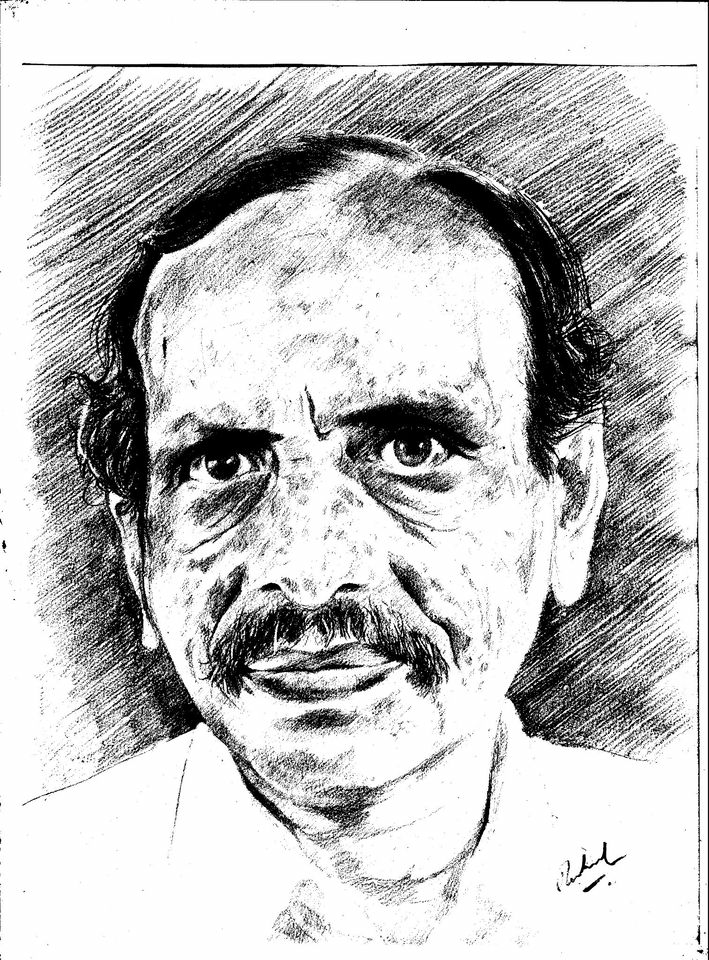Category:
$\newcommand{\DD}[2][]{\frac{d^2 #1}{d^2 #2}}$ $\newcommand{\matrixelement}[3]{\langle#1|#2|#3\rangle}$ $\newcommand{\PP}[2][]{\frac{\partial^2 #1}{\partial #2^2}}$ $\newcommand{\dd}[2][]{\frac{d#1}{d#2}}$ $\newcommand{\pp}[2][]{\frac{\partial #1}{\partial #2}}$
A scheme to solve the time dependent Schr\"{o}dinger equation \begin{equation} \label{eq01} i\hbar \dd{t}\ket{\psi} = \hat{H} \ket{\psi} \end{equation} is described. The final solution will be presented in the form, see \eqref{eq14} \begin{equation} \ket{\psi t} = U(t, t_0) \ket{\psi t_0} \label{eq16} \end{equation}where
\begin{equation}\label{EQ16A} U(t, t_0) \ket{\psi t_0} = \exp\Big(\frac{-i H(t-t_0)}{\hbar}\Big)\end{equation}
For our present discussion, it will be assumed that the Hamiltonian $\hat{H}$ does not depend on time explicitly. Let the state vector of system at initial time $t=0$ be denoted by $\ket{\psi_0}$.
Since $\hat{H}$ is always assumed to be hermitian, its eigenvectors form an orthonormal complete set and we can expand the state vector at time $t$, $\ket{\psi t}$, in terms of the eigenvectors. Denoting the normalized eigenvectors by $\ket{E_n}$, we write
\begin{equation} \label{eq02} \ket{\psi t} = \sum_n c_n(t) \ket{E_n}. \end{equation} where the constants $c_n(t)$ are to be determined. Substituting \eqref{eq02} in \eqref{eq01}, we get
\begin{eqnarray} \label{eq03} i \hbar\dd{t} \sum_n c_n(t) \ket{E_n} &=& \hat{H} \ket{\psi t} \\ i \sum_n \hbar\dd[c_n(t)]{t} \ket{E_n} &=& \sum_n c_n(t) \hat{H} \ket{E_n} \end{eqnarray}
Taking scalar product with $\ket{E_m}$ and using orthonormal property of the eigenvectors $\ket{E_n}$, we get
\begin{equation} \label{eq04} i \hbar\dd[c_m(t)]{t} = E_m c_m(t). \end{equation} which is easily solved to give \begin{equation}\label{eq05} c_m(t) = c_m(0) e^{-iE_m t/ \hbar}. \end{equation}
Therefore, $\ket{\psi t}$,the solution of time dependent equation becomes \begin{equation} \label{eq06} \ket{\psi t} = \sum_m c_m(0) e^{-iE_mt/ \hbar}.\ket{E_m}. \end{equation} The coefficients $c_m(0)$ are determined in terms of the state vector \(\ket{\psi_0} \) at time \(t=0\) by setting time $t=0$ in the above equation. This gives
\begin{equation}\label{eq07} \ket{\psi_0} = \sum_n c_n(0) \ket{E_n}. \end{equation}
The unknown coefficients $c_n(0)$ can now be computed; taking scalar product of \eqref{eq07}, with $\ket{E_m}$ we get
\begin{equation} \label{eq08} c_m(0) =\innerproduct{E_m}{\psi_0}. \end{equation}
Thus \eqref{eq06} and \eqref{eq08} give the solution of the time dependent Schr\"{o}dinger equation as
\begin{equation}\label{eq09} \boxed{\ket{\psi t} = \sum_n c_n(0) \exp(-i E_n t/\hbar)\ket{E_n}}. \end{equation}
The right hand side of the above equation can be rewritten as
\begin{eqnarray}\label{eq21} \sum_n c_n(0) \exp(-i E_n t/\hbar)\ket{E_n} &=& \sum_n c_n(0) \exp(-i H t/\hbar)\ket{E_n}\\ &=& \exp(-i H t/\hbar).\sum_n c_n(0) \ket{E_n} \end{eqnarray}
Therefore \eqref{eq09} takes the form
\begin{eqnarray}\label{eq10} \ket{\psi t} &=& \exp(-iHt/ \hbar) \sum _n c_n(0)\ket{E_n}\\ \label{eq11} \ket{\psi t} &=& \exp(-iHt/ \hbar) \ket{\psi_0}. \end{eqnarray}
In general, if the state vector is know at time $t=t_0$, instead of time $t=0$, the result \eqref{eq10} takes the form
\begin{eqnarray}\label{eq12} \ket{\psi t} &=& \exp(-iH(t-t_0)/\hbar) \sum _n c_n(t_0)\ket{E_n}\\ &=& \exp(-iH(t-t_0)/\hbar) \ket{\psi t_0} \label{eq13}. \end{eqnarray}
The time evolution operator $U(t,t_0)$, of \eqref{eq16}, is therefore given by
\begin{equation} \label{eq14} \boxed{U(t,t_0) = \exp(-iH(t-t_0)/\hbar)} . \end{equation}
Exclude node summary :
Exclude node links:
4727: Diamond Point, 4909: QM-HOME-I






 ||Message]
||Message]
